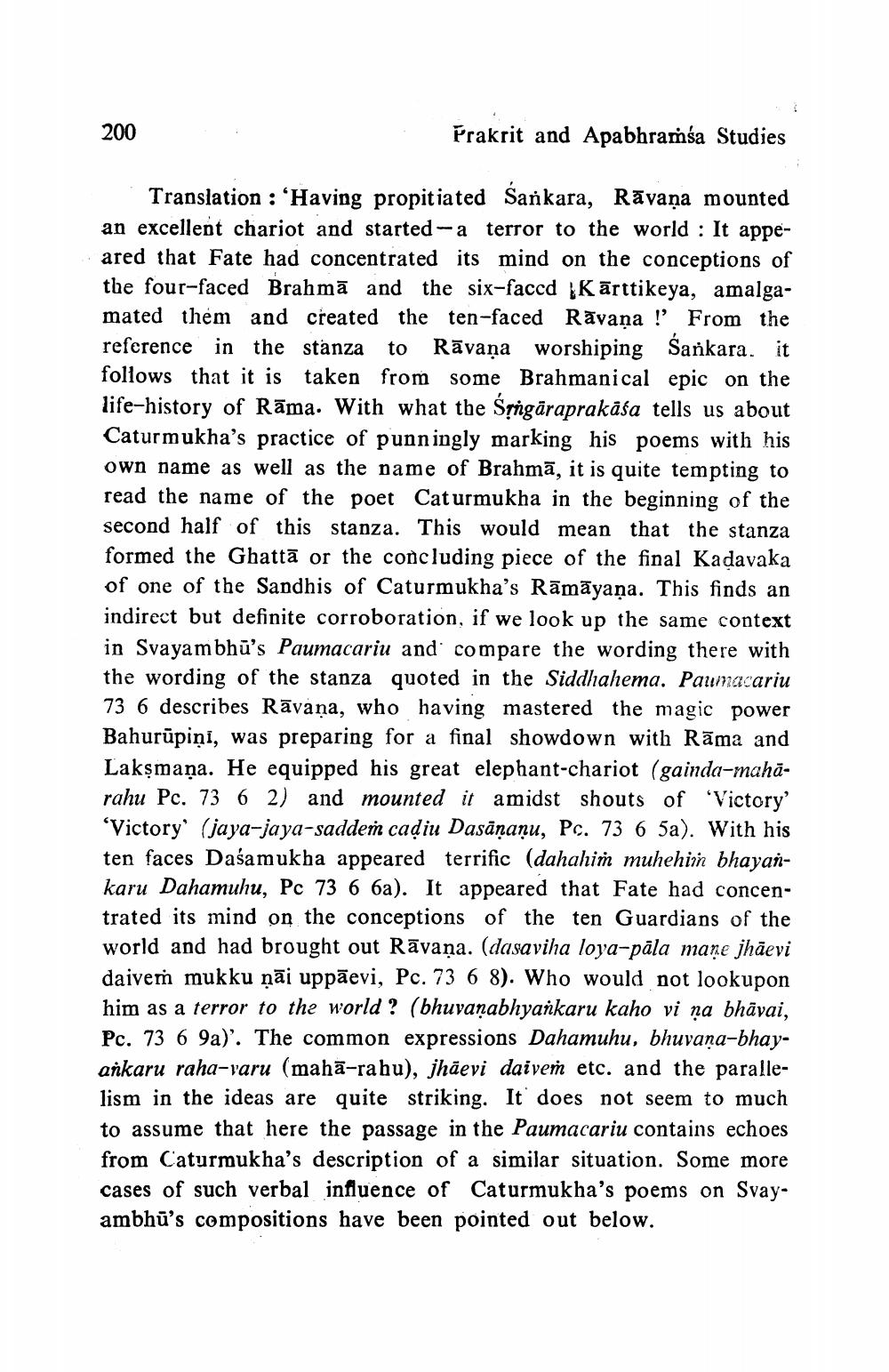________________
200
Prakrit and Apabhraíśa Studies
Translation : ‘Having propitiated Sankara, Rāvaņa mounted an excellent chariot and started -a terror to the world : It appeared that Fate had concentrated its mind on the conceptions of the four-faced Brahmā and the six-faced Kārttikeya, amalgamated them and created the ten-faced Rāvaņa ! From the reference in the stanza to Rāvaņa worshiping Sankara. it follows that it is taken from some Brahmanical epic on the life-history of Rāma. With what the Sțngāraprakāśa tells us about Caturmukha's practice of punningly marking his poems with his own name as well as the name of Brahmā, it is quite tempting to read the name of the poet Caturmukha in the beginning of the second half of this stanza. This would mean that the stanza formed the Ghattā or the concluding piece of the final Kadavaka of one of the Sandhis of Caturmukha's Rāmāyaṇa. This finds an indirect but definite corroboration, if we look up the same context in Svayam bhū's Paumacariu and compare the wording there with the wording of the stanza quoted in the Siddhahema. Paumacariu 73 6 describes Rāvana, who having mastered the magic power Bahurūpini, was preparing for a final showdown with Rāma and Lakşmaņa. He equipped his great elephant-chariot (gainda-mahārahu Pc. 73 6 2) and mounted it amidst shouts of 'Victory' ‘Victory' (jaya-jaya-saddes cadiu Dasāņaņu, Pc. 73 6 5a). With his ten faces Dasamukha appeared terrific (dahaliñ muhehiin bhayankaru Dahamuhu, Pc 73 6 6a). It appeared that Fate had concentrated its mind on the conceptions of the ten Guardians of the world and had brought out Rāvaņa. (dasaviha loya-pāla mane jhāevi daivem mukku ņāi uppāevi, Pc. 73 6 8). Who would not lookupon him as a terror to the world ? (bhuvaṇabhyankaru kaho vi na bhāvai, Pc. 73 6 9a)'. The common expressions Dahamuhu, bhuvana-bhayankaru raha-varu (mahā-rahu), jhāevi daivem etc. and the parallelism in the ideas are quite striking. It does not seem to much to assume that here the passage in the Paumacariu contains echoes from Caturmukha's description of a similar situation. Some more cases of such verbal influence of Caturmukha's poems on Svayambhū’s compositions have been pointed out below.




